Engineers, doctors and moms team up to 'make the breast pump not suck' and hack other barriers to breastfeeding
The hackathon was held at the Massachusetts Institute of Technology (MIT).
Most women with children know well the awkwardness of the breast pump, from finding a place to use it privately to enduring the uncomfortableness of trying to drown out the noise made by the machine.
Many other mothers have never experienced pumping or even breastfeeding because they are hindered by socioeconomic and cultural factors like racial bias and having to return to work soon after birth.
That's why hundreds of people gathered at the Massachusetts Institute of Technology (MIT) this weekend to collaborate during the aptly-named, “Make the Breast Pump Not Suck Hackathon.”
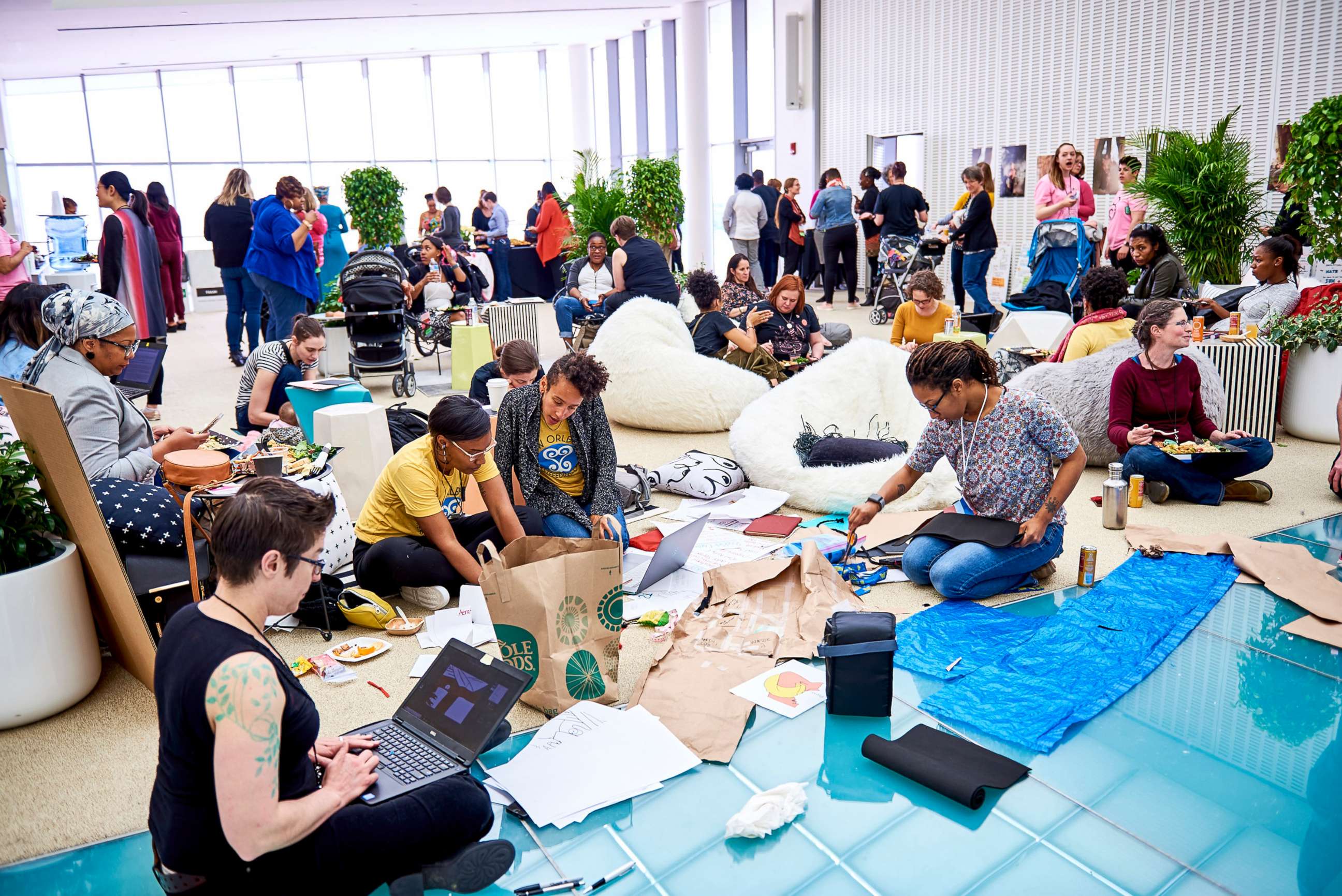
“The energy in the room was so strong and it was so clear that everyone was excited to finally have a space to talk about these things that society normally ignores,” Alexis Hope, the hackathon’s creative director, told “Good Morning America.” “I think it’s the beginning of a larger movement.”
Hope and Catherine D'Ignazio, a fellow researcher at the MIT Media Lab, organized the first “Make the Breast Pump Not Suck” hackathon in 2014 after D’Ignazio found herself breast pumping on a bathroom floor at MIT.
The researchers wondered if that was the condition for mothers at MIT, what was it like for moms in other workplaces and how was it not being addressed on a larger scale, according to Hope.
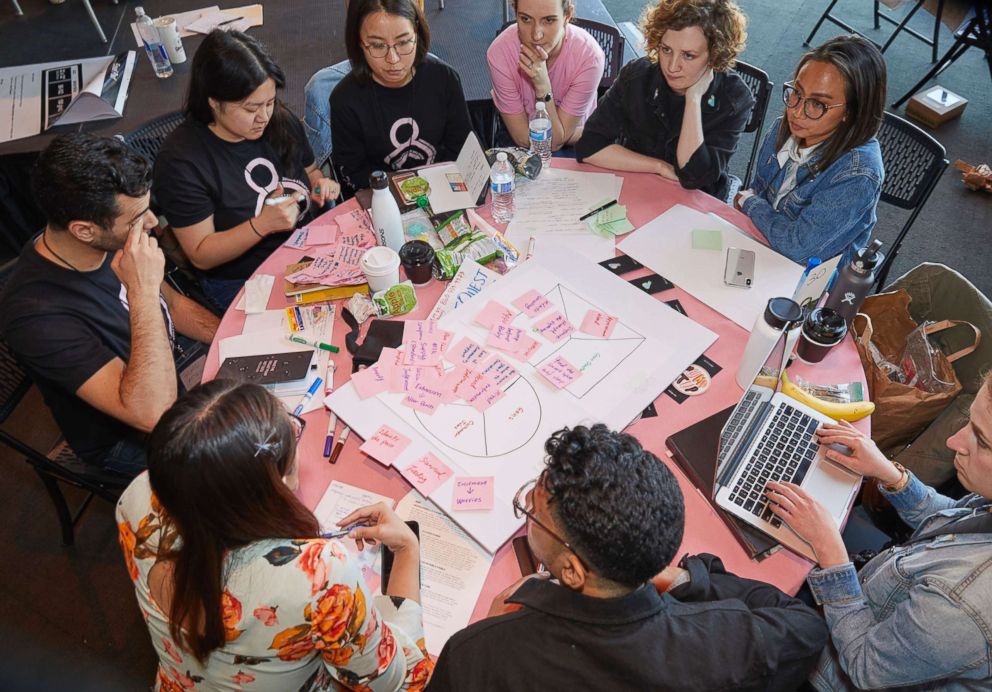
The 2014 hackathon resulted in new breast pump products on the market, but many come with a price tag as high as $1,000.
This year, the hackathon also included a policy summit held simultaneously to address issues like maternity leave and insurance.
“We really thought, ‘How do we attack this problem from all angles, not just technology and design but also policy and access,’” Hope said. “We included a lot of non-parents, and even students, in the room too because it’s not just a women’s or parent’s issue.”
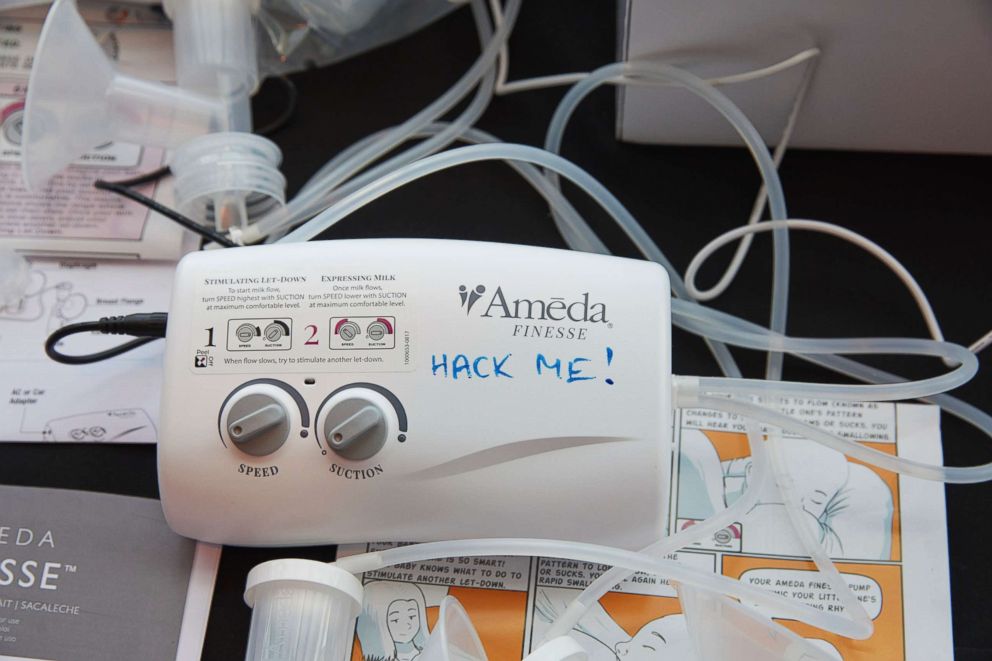
Hackathon participants, who also included doulas, engineers, doctors, and midwives, came up with ideas ranging from a pop up shelf to give women a space to breastfeed to apps for new moms, a website described as “Yelp for the health equity movement” and a live-in community for women in the Mississippi Delta region.
The biggest concerns raised at the hackathon were the issues of the pump itself –- that it's painful, expensive, not at all like the experience of breastfeeding a baby and difficult to use -- and the lack of education about breastfeeding in general.
"As a woman, you’ve been in the dark your whole life [about breastfeeding], which is crazy," Hope said. "There are social norms and taboos that keep us as a society from talking about these things."
Breastfeeding in America
Exclusive breastfeeding is recommended by the American Academy of Pediatrics for newborns during their first six months of life.
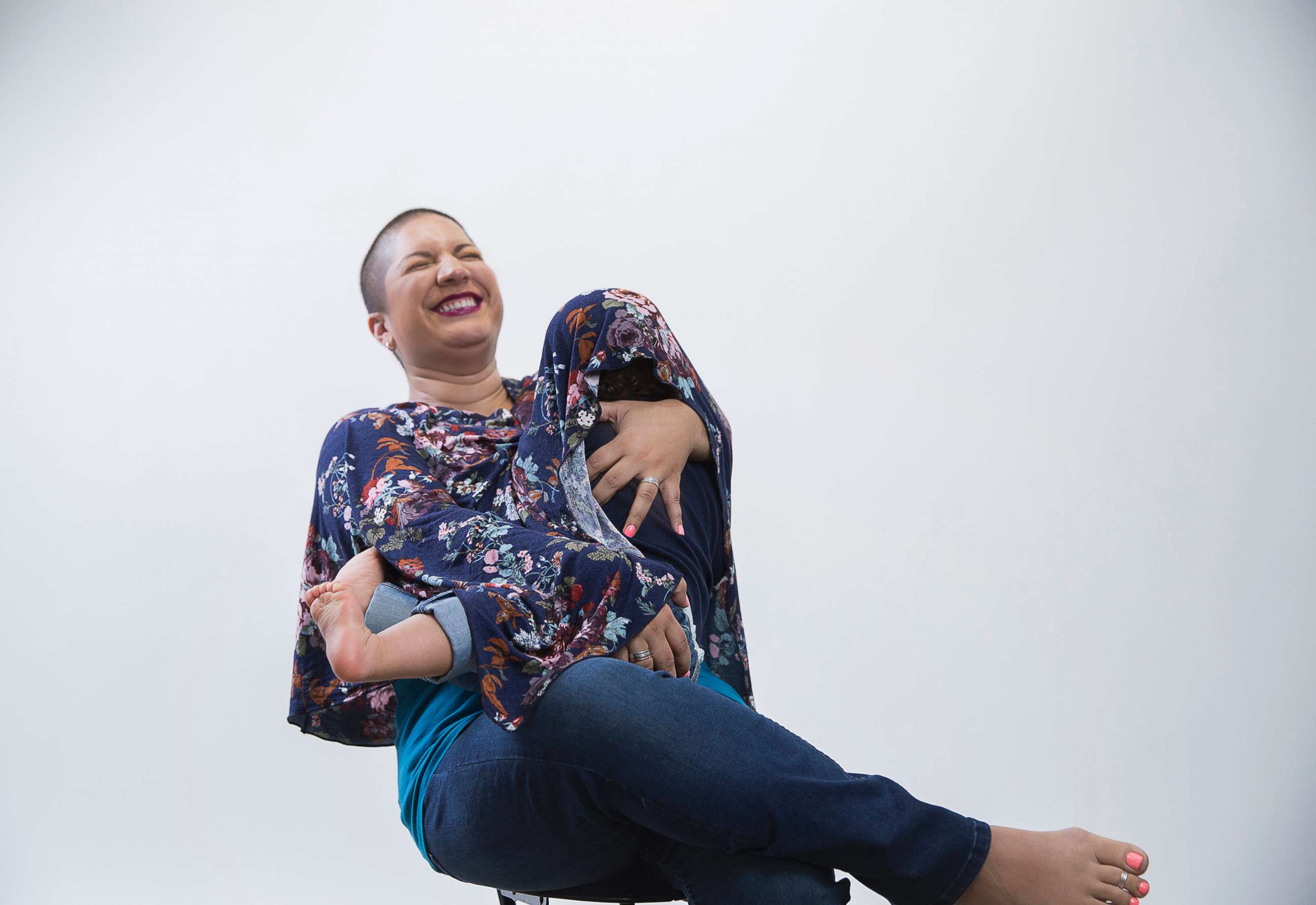
Only 22 percent of babies in the United States are exclusively breastfed until six months, according to the 2016 Breastfeeding Report Card from the Centers for Disease Control and Prevention (CDC).
The report notes that the low rates of exclusive breastfeeding, “suggest that mothers, in part, may not be getting the support they need, such as from healthcare providers, family members, and employers.”
When asked what inspired the hackathon's focus on access to breastfeeding, Hope said it was because the evidence is so clear that breastfeeding is the best for babies, yet it's still not accessible for many mothers.
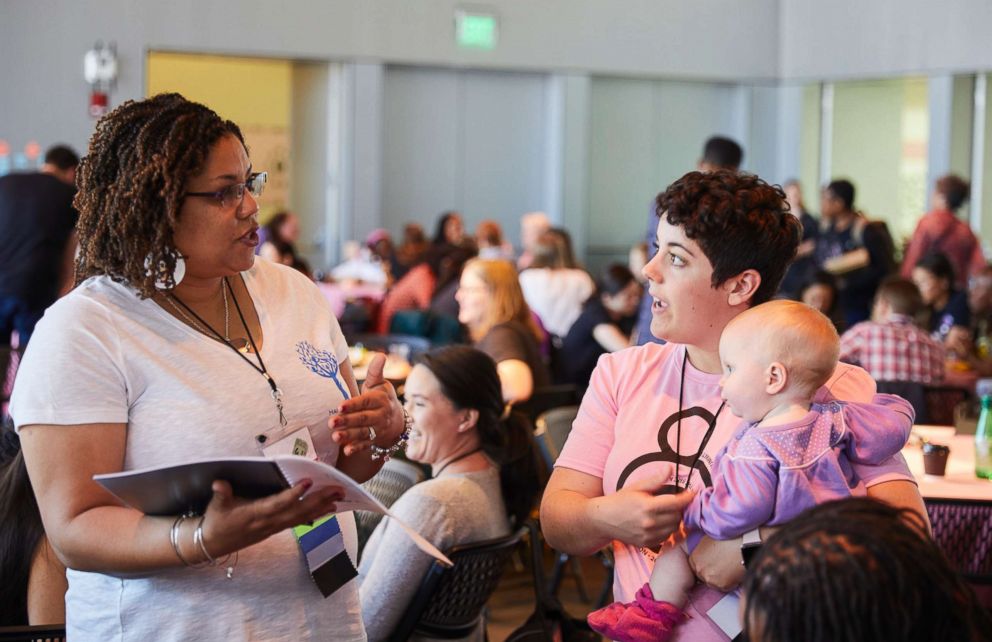
"It’s an economic justice issue as well because formula is expensive," she said. "Carving out time to pump and breastfeed is expensive in a different way, in terms of time, and if you don’t have paid leave, you don’t have that choice."
In addition to developing ideas to help improve the statistics of breastfeeding access, the hackathon leaders spent the past year on a project that allows women’s voices to be heard.
“Speaking Our Truths,” a book available for free online, shares the stories from 27 people on their “breastfeeding journey.”
"That work really highlighted for us that breastfeeding is often framed as an individual choice for women but we’ve identified a constellation of social factors that make it not a real choice for women," Hope said, identifying those factors as lack of paid leave, racial bias in the healthcare system and lack of social support and networks.
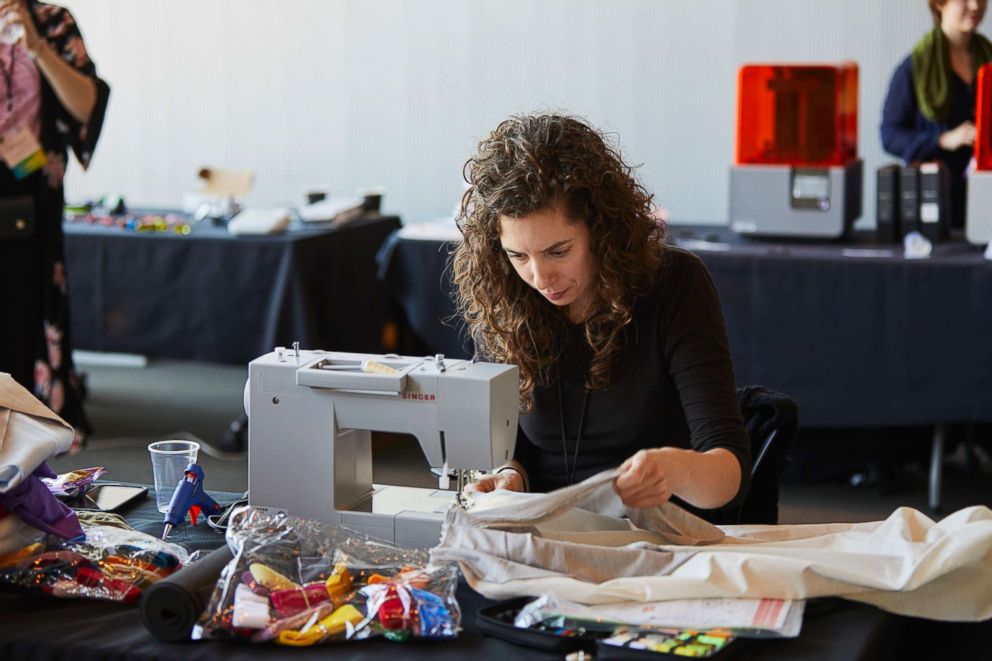
"We are not wanting to shame moms who want to or do not want to breastfeed for any reason," she added. "But just to highlight that for some women it’s not a choice."
Racial bias against mothers can come not just from healthcare providers but also from society, according to Hope.
“Because there aren’t a lot of photos of women of color breastfeeding circulating in the media, for example, it can lead to some women internalizing that they might not be the type of person who can successfully breastfeed," she said, noting that the hackathon's "Superhero Award" was given to a team from Detroit working on a lactation empowerment plan for women of color to self-advocate for breastfeeding.
The U.S. does not guarantee any paid leave for new moms under federal law. Federal laws also do not guarantee new moms equal protections for breast pumping in all employment situations.
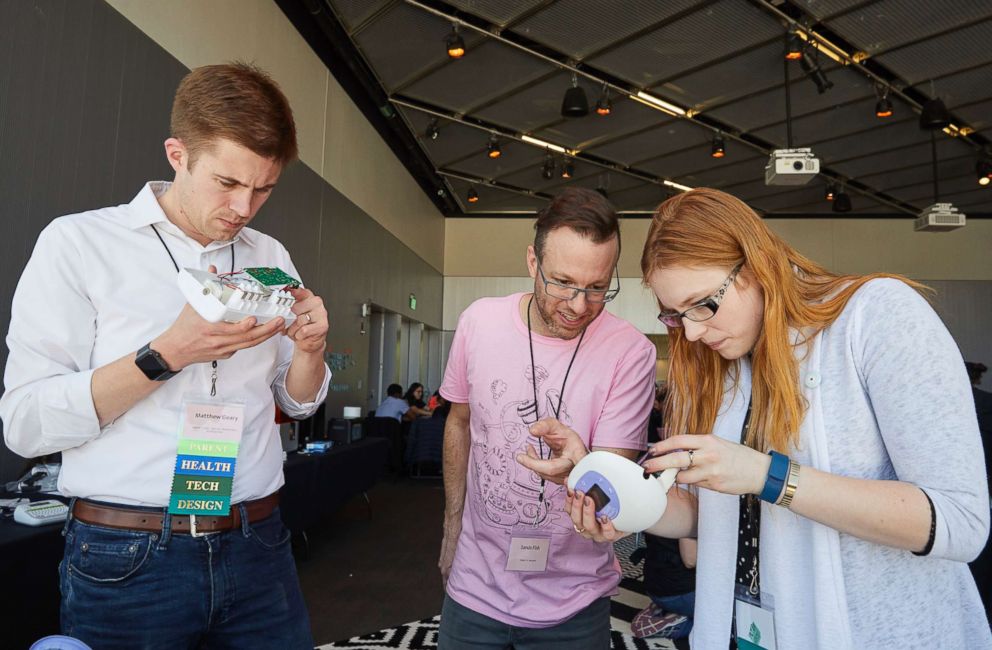
"Twenty-five percent of women in this country have to go back to work after 10 days and you don’t have the opportunity to build up your [milk] supply," Hope said. "If you’re at a job where you can’t take breaks to pump, then you also can’t do it."
The goal of the hackathon, according to Hope, is to have this weekend's 48 hours of collaboration be a "flash point in building a network that grows bigger and bigger."
"It’s a passion project for us," Hope said of herself and five collaborators. "We're also curious to see what happens next.
"There's no way we can stop here."




